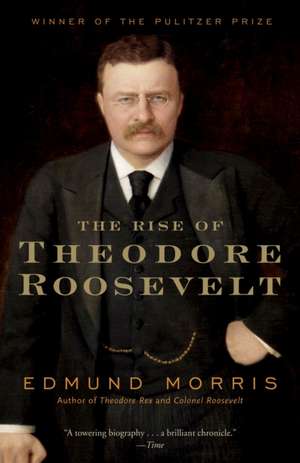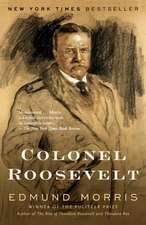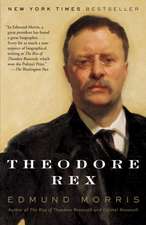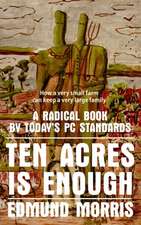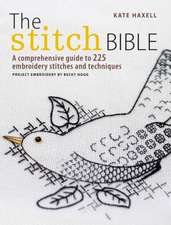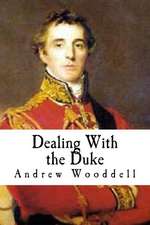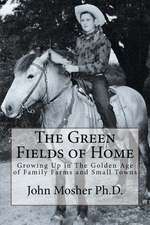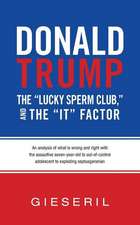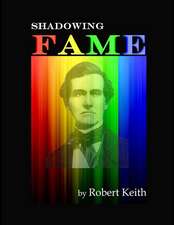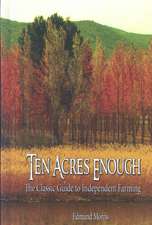The Rise of Theodore Roosevelt
Autor Edmund Morrisen Limba Engleză Paperback – 13 dec 2001
Thirty years ago, The Rise of Theodore Roosevelt won both the Pulitzer Prize and the National Book Award. A collector's item in its original edition, it has never been out of print as a paperback. This classic book is now reissued in hardcover, along with Theodore Rex, to coincide with the publication of Colonel Roosevelt, the third and concluding volume of Edmund Morris's definitive trilogy on the life of the twenty-sixth President.
Although Theodore Rex fully recounts TR's years in the White House (1901-1909), The Rise of Theodore Roosevelt begins with a brilliant Prologue describing the President at the apex of his international prestige. That was on New Year's Day, 1907, when TR, who had just won the Nobel Peace Prize, threw open the doors of the White House to the American people and shook 8,150 hands, more than any man before him. Morris re-creates the reception with such authentic detail that the reader gets almost as vivid an impression of TR as those who attended. One visitor remarked afterward, "You go to the White House, you shake hands with Roosevelt and hear him talk-and then you go home to wring the personality out of your clothes."
The rest of this book tells the story of TR's irresistible rise to power. (He himself compared his trajectory to that of a rocket.) It is, in effect, the biography of seven men-a naturalist, a writer, a lover, a hunter, a ranchman, a soldier, and a politician-who merged at age forty-two to become the youngest President in our history. Rarely has any public figure exercised such a charismatic hold on the popular imagination. Edith Wharton likened TR's vitality to radium. H. G. Wells said that he was "a very symbol of the creative will in man." Walter Lippmann characterized him simply as our only "lovable" chief executive.
During the years 1858-1901, Theodore Roosevelt, the son of a wealthy Yankee father and a plantation-bred southern belle, transformed himself from a frail, asthmatic boy into a full-blooded man. Fresh out of Harvard, he simultaneously published a distinguished work of naval history and became the fist-swinging leader of a Republican insurgency in the New York State Assembly. He had a youthful romance as lyrical-and tragic-as any in Victorian fiction. He chased thieves across the Badlands of North Dakota with a copy of Anna Karenina in one hand and a Winchester rifle in the other. Married to his childhood sweetheart in 1886, he became the country squire of Sagamore Hill on Long Island, a flamboyant civil service reformer in Washington, D.C., and a night-stalking police commissioner in New York City. As assistant secretary of the navy under President McKinley, he almost single-handedly brought about the Spanish-American War. After leading "Roosevelt's Rough Riders" in the famous charge up San Juan Hill, Cuba, he returned home a military hero, and was rewarded with the governorship of New York. In what he called his "spare hours" he fathered six children and wrote fourteen books. By 1901, the man Senator Mark Hanna called "that damned cowboy" was vice president of the United States. Seven months later, an assassin's bullet gave TR the national leadership he had always craved.
His is a story so prodigal in its variety, so surprising in its turns of fate, that previous biographers have treated it as a series of haphazard episodes. This book, the only full study of TR's pre-presidential years, shows that he was an inevitable chief executive, and recognized as such in his early teens. His apparently random adventures were precipitated and linked by various aspects of his character, not least an overwhelming will. "It was as if he were subconsciously aware that he was a man of many selves," the author writes, "and set about developing each one in turn, knowing that one day he would be President of all the people."
Preț: 140.48 lei
Nou
26.88€ • 27.91$ • 22.42£
Carte disponibilă
Livrare economică 03-17 martie
Livrare express 14-20 februarie pentru 32.40 lei
Specificații
ISBN-10: 0375756787
Pagini: 960
Ilustrații: illustrations
Dimensiuni: 134 x 203 x 35 mm
Greutate: 0.54 kg
Ediția:Modern Library.
Editura: KUPERARD (BRAVO LTD)
Notă biografică
Edmund Morris
Descriere
Selected by the Modern Library as one of the 100 best nonfiction books of all time
Thirty years ago, The Rise of Theodore Roosevelt won both the Pulitzer Prize and the National Book Award. A collector's item in its original edition, it has never been out of print as a paperback. This classic book is now reissued in hardcover, along with Theodore Rex, to coincide with the publication of Colonel Roosevelt, the third and concluding volume of Edmund Morris's definitive trilogy on the life of the twenty-sixth President.
Although Theodore Rex fully recounts TR's years in the White House (1901-1909), The Rise of Theodore Roosevelt begins with a brilliant Prologue describing the President at the apex of his international prestige. That was on New Year's Day, 1907, when TR, who had just won the Nobel Peace Prize, threw open the doors of the White House to the American people and shook 8,150 hands, more than any man before him. Morris re-creates the reception with such authentic detail that the reader gets almost as vivid an impression of TR as those who attended. One visitor remarked afterward, "You go to the White House, you shake hands with Roosevelt and hear him talk-and then you go home to wring the personality out of your clothes."
The rest of this book tells the story of TR's irresistible rise to power. (He himself compared his trajectory to that of a rocket.) It is, in effect, the biography of seven men-a naturalist, a writer, a lover, a hunter, a ranchman, a soldier, and a politician-who merged at age forty-two to become the youngest President in our history. Rarely has any public figure exercised such a charismatic hold on the popular imagination. Edith Wharton likened TR's vitality to radium. H. G. Wells said that he was "a very symbol of the creative will in man." Walter Lippmann characterized him simply as our only "lovable" chief executive.
During the years 1858-1901, Theodore Roosevelt, the son of a wealthy Yankee father and a plantation-bred southern belle, transformed himself from a frail, asthmatic boy into a full-blooded man. Fresh out of Harvard, he simultaneously published a distinguished work of naval history and became the fist-swinging leader of a Republican insurgency in the New York State Assembly. He had a youthful romance as lyrical-and tragic-as any in Victorian fiction. He chased thieves across the Badlands of North Dakota with a copy of Anna Karenina in one hand and a Winchester rifle in the other. Married to his childhood sweetheart in 1886, he became the country squire of Sagamore Hill on Long Island, a flamboyant civil service reformer in Washington, D.C., and a night-stalking police commissioner in New York City. As assistant secretary of the navy under President McKinley, he almost single-handedly brought about the Spanish-American War. After leading "Roosevelt's Rough Riders" in the famous charge up San Juan Hill, Cuba, he returned home a military hero, and was rewarded with the governorship of New York. In what he called his "spare hours" he fathered six children and wrote fourteen books. By 1901, the man Senator Mark Hanna called "that damned cowboy" was vice president of the United States. Seven months later, an assassin's bullet gave TR the national leadership he had always craved.
His is a story so prodigal in its variety, so surprising in its turns of fate, that previous biographers have treated it as a series of haphazard episodes. This book, the only full study of TR's pre-presidential years, shows that he was an inevitable chief executive, and recognized as such in his early teens. His apparently random adventures were precipitated and linked by various aspects of his character, not least an overwhelming will. "It was as if he were subconsciously aware that he was a man of many selves," the author writes, "and set about developing each one in turn, knowing that one day he would be President of all the people."
